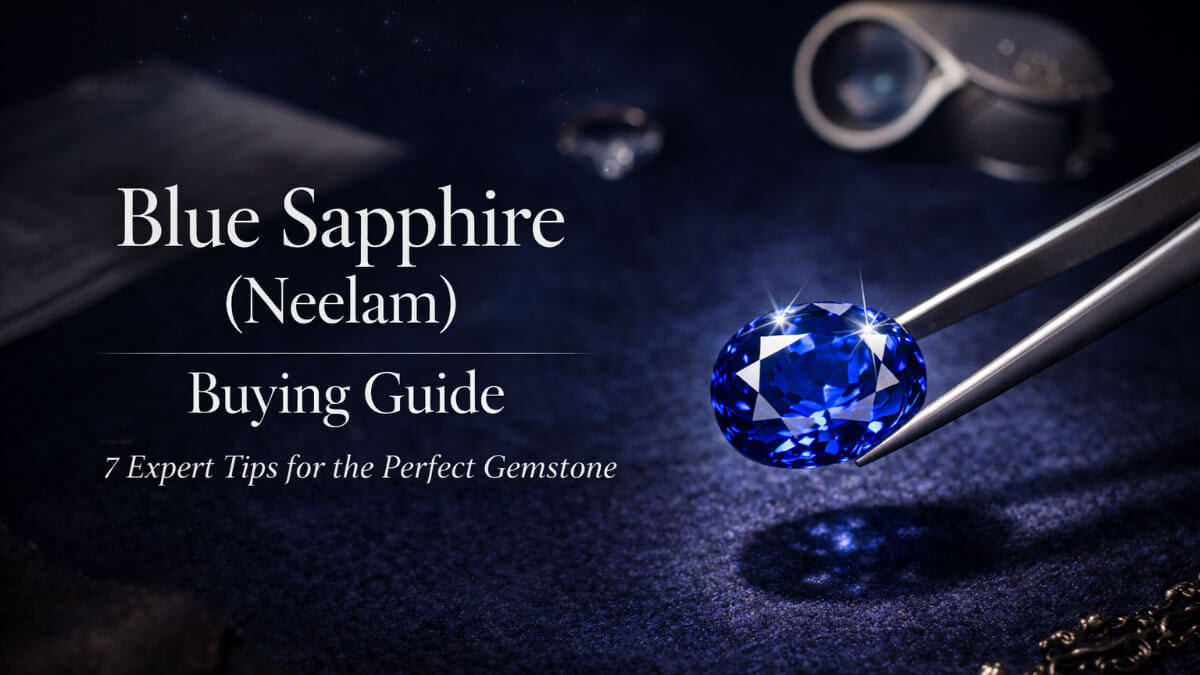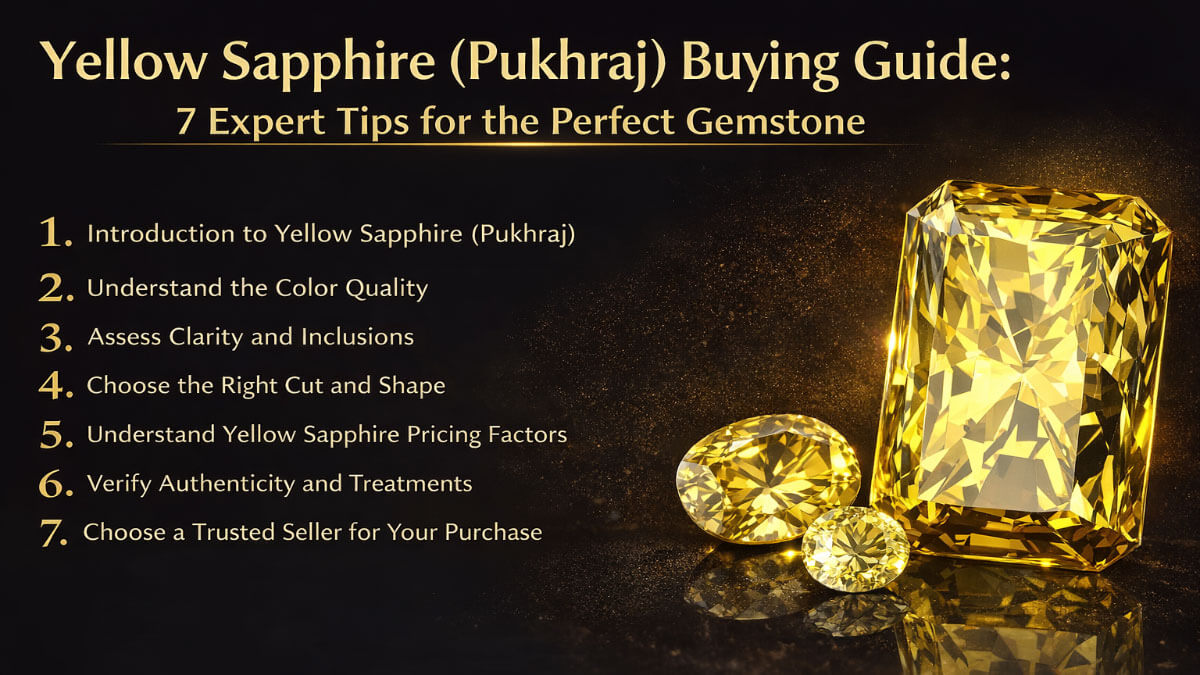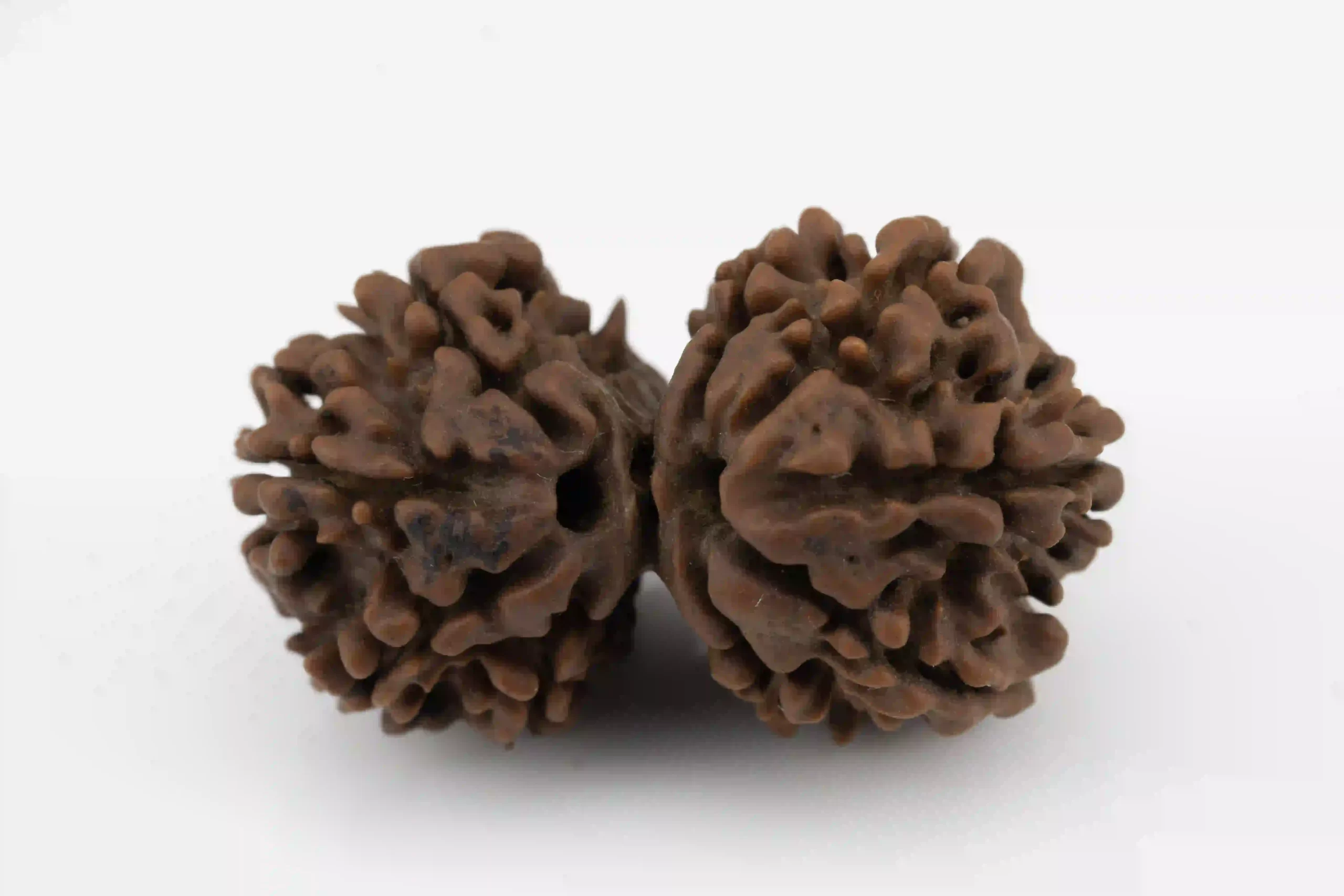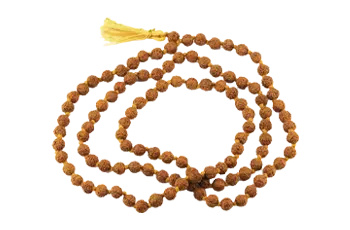Original Gomed Stone Price & Rahu Benefits: Hessonite Guide India (2026)
Looking for an original Gomed stone for Rahu? Hessonite — the honey-colored garnet known as Gomed in India — is the primary gemstone prescribed for the shadow planet Rahu in Vedic astrology. With Rahu Mahadasha lasting 18 years and affecting millions of people, demand for genuine Gomed is high. But how do you identify an authentic Hessonite from glass imitations? This guide covers everything: current Gomed stone price in India, how to spot the signature “treacle effect,” Ceylon vs African Gomed comparison, Hessonite benefits according to Vedic traditions, and what makes a Gomed astrologically potent. Whether you’re in Rahu Mahadasha, Sade Sati, or seeking Rahu’s blessings, you’ll learn to buy with confidence.


Gomed Quick Facts
| Mineral Family | Garnet (Grossular variety) |
| Chemical Formula | Ca₃Al₂(SiO₄)₃ |
| Hardness | 7 – 7.5 on Mohs Scale |
| Specific Gravity | 3.57 – 3.73 |
| Refractive Index | 1.734 – 1.759 |
| Hindi Name | Gomed (गोमेद), Gomedak |
| Astrological Planet | Rahu (North Node of Moon) |
| Price Range (India) | ₹200 – ₹3,000+ per carat |
What is Gomed Stone (Hessonite)?
Gomed is the Hindi name for Hessonite — a honey-colored variety of Grossular Garnet. The name “Hessonite” comes from Greek hesson meaning “inferior,” as it was considered softer than other garnets. Despite this naming, Hessonite is a beautiful and astrologically significant gemstone.
The ideal Gomed color is described in Vedic texts as resembling “gomutra” (cow’s urine) — a bright honey-yellow to cinnamon-brown. This specific color is believed to be most effective for Rahu. Hessonite is also known for its unique internal characteristic called the “treacle effect.”
Gomed by Origin
Origin Comparison
| Origin | Color | Clarity | Value |
|---|---|---|---|
| Sri Lanka (Ceylon) | Honey-yellow to brownish-orange (“gomutra”) | Superior transparency, fine treacle | Highest — premium quality |
| African (Tanzania, Madagascar) | Darker reddish-brown to orange-brown | More included, visible treacle | Moderate — good value |
| Indian (Gaya, Bihar) | Good honey-brown, can be darker | Variable clarity | Moderate — popular for astrology |
Why Ceylon Gomed is Premium: Sri Lankan Hessonite from the famous gem gravels produces the finest “gomutra” color with superior transparency. The treacle effect is present but doesn’t cloud the stone. For astrological purposes, Ceylon Gomed is considered most effective, though African and Indian varieties work well at lower price points.
Gomed Stone Price in India (2026)
Understanding Gomed stone price helps you buy within budget while getting quality:
Price by Quality Grade
| Quality | Price (₹/carat) | Color | Clarity |
|---|---|---|---|
| Commercial | ₹200 – ₹400 | Dark brown, dull | Heavily included, cloudy |
| Good | ₹400 – ₹800 | Medium honey-brown | Visible treacle, good transparency |
| Fine | ₹800 – ₹1,500 | Rich gomutra shade | High transparency, fine treacle |
| Exceptional (Ceylon) | ₹1,500 – ₹3,000+ | Ideal honey-cinnamon | Excellent transparency |
Price by Origin
| Origin | Price Range (₹/carat) | Best For |
|---|---|---|
| Ceylon (Sri Lankan) | ₹800 – ₹3,000+ | Premium astrological use, collectors |
| African | ₹300 – ₹1,200 | Good value astrological use |
| Indian (Gaya) | ₹400 – ₹1,500 | Traditional astrological use |
Gomed Product Prices
| Product | Size/Specs | Price Range (₹) |
|---|---|---|
| Loose Gomed Stone (astrological) | 5-7 carat | ₹1,000 – ₹15,000 |
| Gomed Ring (Silver) | 5-7 carat stone | ₹2,500 – ₹12,000 |
| Gomed Ring (Gold) | 5-7 carat stone | ₹15,000 – ₹40,000 |
| Gomed Pendant | 5-8 carat | ₹2,000 – ₹10,000 |
| Hessonite Bracelet | 8mm beads | ₹800 – ₹3,000 |
Prices as of January 2026. Actual prices vary based on color, clarity, origin, and treacle effect visibility.
What Affects Gomed Price?
- Color: Bright honey-yellow to cinnamon (“gomutra”) is most valuable; dark, blackish, or muddy colors reduce value
- Clarity: High transparency with visible but not clouding treacle effect is ideal
- Origin: Ceylon (Sri Lanka) commands 2-3x premium over African
- Treacle Effect: Present but not overwhelming; indicates natural origin
- Cut: Well-proportioned cut maximizes brilliance and color
- Size: Price per carat increases moderately for larger stones
What is the “Treacle Effect” in Gomed?
The treacle effect is Hessonite’s most distinctive characteristic — and a key indicator of natural origin.
Understanding Treacle Effect
When you look inside a natural Hessonite, you’ll see a swirling, roiled appearance — like honey or molten treacle (a type of syrup) moving within the stone. This is caused by:
- Internal crystal growth patterns
- Minute inclusions and liquid-filled cavities
- Stress patterns from formation
Why Treacle Effect Matters: The presence of treacle effect is a strong indicator that your Hessonite is natural. Synthetic garnets and glass imitations appear perfectly clean without this characteristic internal swirling. A Gomed that is too “perfect” or glass-like clean should raise suspicion.
Evaluating Treacle Effect
- Ideal: Visible treacle under magnification or in strong light, but doesn’t cloud the stone
- Acceptable: Pronounced treacle visible to naked eye, stone still transparent
- Lower Quality: Heavy, cloudy treacle that makes stone opaque or murky
How to Identify Original Gomed Stone
Hessonite is rarely treated (unlike many gemstones), so the main concern is distinguishing natural Gomed from glass imitations or synthetic garnets.
Important Disclaimer: The following self-tests are for preliminary analysis only. They help identify obvious fakes but cannot guarantee authenticity with 100% certainty. For definitive identification, always obtain a lab certificate from a recognized gemological laboratory.
Test 1: Treacle Effect Check (Most Important)
This is the key identifier for natural Hessonite.
How to check:
- Hold the stone under bright light or use a 10x loupe
- Look into the stone from different angles
- Observe internal appearance
Preliminary results:
- Natural Hessonite: Swirling, honey-like internal appearance (treacle effect)
- Glass: Perfectly clean, may have round air bubbles
- Synthetic Garnet: Too perfect, lacks natural treacle patterns
Test 2: Temperature Test
Natural gemstones conduct heat differently than glass.
Preliminary results:
- Natural Hessonite: Feels cool, warms slowly
- Glass: Feels cool but warms faster in hand
Test 3: Weight/Heft Test
Hessonite (SG 3.57-3.73) is significantly denser than glass (SG ~2.5).
Preliminary results:
- Natural Hessonite: Feels noticeably heavy for its size
- Glass: Feels lighter than expected
Test 4: Hardness Test
Hessonite (hardness 7-7.5) is harder than glass (5.5).
Preliminary results:
- Natural Hessonite: Can scratch glass easily
- Glass imitation: Cannot scratch other glass (similar hardness)
Test 5: Air Bubble Check
Under 10x magnification:
- Natural Hessonite: No round air bubbles; shows treacle, may have natural inclusions
- Glass: Often contains round air bubbles (manufacturing defect)
Test 6: Lab Certification (100% Reliable)
For valuable purchases or astrological use, lab testing confirms:
- Material: Natural Grossular Garnet (Hessonite)
- Origin: If determinable (Ceylon, African, etc.)
- Treatment: Usually none (Hessonite is rarely treated)
Good News: Unlike many gemstones, Hessonite is rarely treated or enhanced. Its color is natural, and treatments are uncommon. The main concern is distinguishing natural from synthetic or glass — which the treacle effect helps identify.
Hessonite Benefits According to Vedic Astrology
According to Vedic astrology (Jyotish), Gomed is the primary gemstone for Rahu — the North Node of the Moon, considered a shadow planet (Chaya Graha). Rahu is associated with ambition, material success, foreign connections, and unconventional paths.
Who May Consider Wearing Gomed?
As per traditional Jyotish recommendations:
- Individuals undergoing Rahu Mahadasha (18-year period)
- Those with Rahu in difficult positions in their birth chart
- Aquarius (Kumbh) ascendant — some consider Rahu co-ruler
- People seeking success in politics, media, technology, or foreign connections
- Those facing confusion, anxiety, or unclear direction in life
Traditional Benefits Associated with Gomed
According to astrological practitioners, wearing Gomed may support:
- Mental clarity and reduced confusion
- Protection from negative energies and psychic attacks
- Success in career, especially unconventional fields
- Improved focus and concentration
- Victory over enemies and competitors
- Better decision-making ability
- Success in foreign lands or dealings
Traditional Wearing Guidelines
| Recommended Weight | 5-7 carats minimum (some recommend 1/10th of body weight in rattis) |
| Finger | Middle finger (right hand) — Saturn/Rahu finger |
| Metal | Silver (preferred) or Panchdhatu; some use gold |
| Day to Wear | Saturday evening or during Rahu Kaal, Shukla Paksha |
| Mantra | “Om Raam Rahave Namah” (ॐ रां राहवे नमः) — 108 times |
| Cleansing | Gangajal or raw cow’s milk before wearing |
Important: Rahu is considered a powerful and unpredictable planet. According to traditional beliefs, wearing Gomed without proper astrological guidance can sometimes intensify Rahu’s challenging effects. Please consult a qualified Jyotish practitioner before wearing Gomed. This is especially important during Rahu Mahadasha or if Rahu is strongly placed in your chart.
Gomed vs. Cat’s Eye (Lehsunia): Understanding the Difference
Many buyers confuse Gomed (for Rahu) with Lehsunia/Cat’s Eye (for Ketu). Here’s the key difference:
Gomed vs. Lehsunia Comparison
| Feature | Gomed (Hessonite) | Lehsunia (Cat’s Eye) |
|---|---|---|
| Planet | Rahu (North Node) | Ketu (South Node) |
| Mineral | Grossular Garnet | Chrysoberyl |
| Color | Honey-brown to cinnamon | Yellowish-green to brownish |
| Key Feature | Treacle effect (internal swirling) | Chatoyancy (cat’s eye band) |
| Optical Effect | None (transparent) | Moving light band (cat’s eye) |
Both are important for Rahu-Ketu axis remedies, but they serve different astrological purposes. Ensure you’re buying the correct stone for your needs.
How to Evaluate Gomed Quality
Quality evaluation for astrologically effective Gomed:
1. Color (50% of value)
- Best: Bright honey-yellow to cinnamon-brown (“gomutra” shade)
- Good: Medium honey-brown, even saturation
- Average: Slightly darker brown or orange-brown
- Lower: Very dark, blackish, muddy, or dull
2. Clarity/Transparency (30% of value)
- Best: High transparency with subtle treacle effect
- Good: Good transparency, visible treacle
- Average: Semi-transparent, pronounced treacle
- Lower: Cloudy, opaque, heavy inclusions
3. Treacle Effect (10% of value)
- Should be present (indicates natural origin)
- Should not make stone cloudy or opaque
- Fine, subtle treacle is preferable to heavy swirling
4. Cut (10% of value)
- Well-proportioned faceted cut
- Good symmetry and polish
- Maximizes brilliance and color
- Oval and cushion cuts are most popular
How to Care for Gomed Jewelry
Hessonite is relatively durable and easy to care for:
- Cleaning: Warm soapy water and soft brush; rinse thoroughly
- Avoid: Steam cleaners, ultrasonic cleaners (may damage inclusions)
- Storage: Store separately from harder gems like Sapphire or Diamond
- Daily Wear: Suitable for rings; hardness 7-7.5 provides good durability
- Protection: Avoid hard impacts that could chip the stone
Buying Checklist: Original Gomed
Before purchasing, verify:
- ✓ Rich honey-brown “gomutra” color (not dark, blackish, or muddy)
- ✓ Treacle effect visible under light/magnification
- ✓ Good transparency (stone is not cloudy or opaque)
- ✓ No round air bubbles (would indicate glass)
- ✓ Feels heavy for its size (denser than glass)
- ✓ Lab certification confirming “Natural Hessonite/Grossular Garnet”
- ✓ Origin disclosed (Ceylon is premium)
- ✓ Return policy offered
For comprehensive gemstone evaluation guidance, see our complete gemstone buying guide.
Why Buy Gomed from Ratna Gems?
Every Hessonite from Ratna Gems comes with:
- Lab Certification: Natural Hessonite Garnet certified with origin — not glass or synthetic.
- Treacle Effect Verified: Natural characteristics confirmed for astrological effectiveness.
- 7-Day Returns: Shop with confidence — full refund if not satisfied.
Frequently Asked Questions
What is Gomed stone price in India?
Gomed (Hessonite) price in India ranges from ₹200-400/carat for commercial quality to ₹800-1,500/carat for fine quality, and ₹1,500-3,000+/carat for exceptional Ceylon Gomed. Price depends on color (honey-brown “gomutra” is best), clarity, origin (Ceylon is premium), and treacle effect quality.
What are Hessonite benefits in astrology?
According to Vedic astrology, Gomed (Hessonite) is the gemstone for Rahu. Traditional benefits include mental clarity, protection from negative energies, career success (especially in unconventional fields), improved focus, victory over competitors, and success in foreign connections. It’s particularly recommended during Rahu Mahadasha.
What is the treacle effect in Gomed?
The treacle effect is a swirling, honey-like internal appearance unique to natural Hessonite — caused by growth patterns and inclusions. It looks like dense syrup moving inside the stone. This effect is a key indicator of natural origin; glass and synthetic imitations lack this characteristic.
How to identify original Gomed stone?
Key tests: Look for treacle effect (swirling internal appearance), check for weight (Hessonite is heavy), ensure no air bubbles under magnification, and verify it can scratch glass. However, for 100% certainty, always get lab certification confirming “Natural Hessonite Garnet.”
Is Ceylon Gomed better than African?
Ceylon (Sri Lankan) Gomed is considered premium due to its superior clarity and ideal “gomutra” color. African Gomed is darker but offers excellent value. For astrological purposes, both are effective — Ceylon commands 2-3x premium pricing. Choose based on budget and quality preferences.
Which finger should Gomed be worn on?
According to traditional Vedic astrology, Gomed is worn on the middle finger of the right hand, set in silver or Panchdhatu, on Saturday evening (or during Rahu Kaal) during Shukla Paksha. The Rahu mantra “Om Raam Rahave Namah” is chanted 108 times before wearing.
Can everyone wear Gomed?
According to astrological traditions, Gomed should be worn only after consulting a qualified astrologer. Rahu is considered powerful and unpredictable — wearing Gomed without proper guidance may intensify challenges. It’s particularly recommended for those in Rahu Mahadasha or with specific chart placements.







